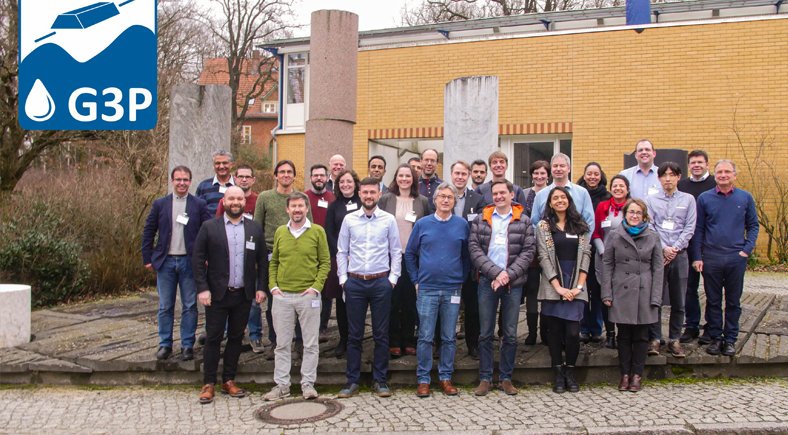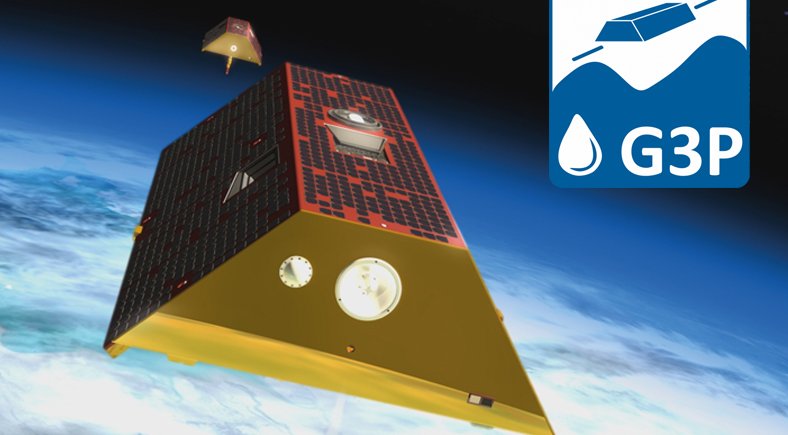Kick-off of the Horizon 2020 project G3P for the satellite-based measurement of the global groundwater distribution
On 6 and 7 February the kick-off meeting for the project "Global Gravity-based Groundwater Product" (G3P) took place at the German Research Centre for Geosciences GFZ. In this project, researchers use satellite data to gain information about global groundwater reserves. It is part of the EU research programme Horizon 2020 and is coordinated by a team headed by Andreas Güntner from the GFZ section "Hydrology". Scientists from twelve partner institutions from seven European countries plus other countries outside Europe gathered to plan the joint route through the project, which was launched in January.
The data at the heart of G3P comes from the satellites of the GRACE and GRACE-FO missions. GRACE stands for "Gravity Recovery And Climate Experiment", FO for "Follow-On", i.e. the associated follow-up mission. GRACE provided data on the Earth's gravity field from 2002 to 2017. GRACE-FO was launched into space in May 2018 and continued the measurements with higher accuracy. This currently ongoing mission provides continuous information on the complete water supply on Earth, the so-called "Total Water Storage" (TWS).
In G3P, the quantity of groundwater everywhere on earth is now to be determined from the known components of the water cycle and the TWS. To establish the individual components of the water cycle, G3P draws on the already functioning services in the European Commission's satellite data platform Copernicus. The product developed in the G3P project will be integrated and further improved in Copernicus in the future. The project is scheduled for three years. The next meeting of the consortium is planned for summer 2020 at the University of Zurich. (ph)
The project has received funding from the European Union’s Horizon 2020 research and innovation programme under grant agreement No 870353.
Further information:
- EU-Fact-Sheet on G3P: „Global Gravity-based Groundwater Product”









![[Translate to English:] Torsten Sachs in front of a climate station on a field](/fileadmin/_processed_/3/9/csm__TorstenSachs_bearbeitet_GS_4a1365ef84.jpeg)

![[Translate to English:] left image flood at the Ahrtal: image from above, several houses are flooded; left image:: Heidi Kreibich;](/fileadmin/_processed_/4/4/csm_Bild2_9af0130e9f.png)



![[Translate to English:] Start der Vega Rakete](/fileadmin/_processed_/6/4/csm_20231201-kachel_Vega-VV23-launch_ESA-CNES-Arianespace_706716b68c.jpeg)









![[Translate to English:] Poster exhibition at the Brandenburg Hydrogen Day at the GFZ, some participants in the foreground](/fileadmin/_processed_/6/5/csm_Erster_Brandenburgischer_Wasserstofftag_GFZ_402fcec95e.jpeg)
![[Translate to English:] Group picture of the participants](/fileadmin/_processed_/9/4/csm_20231108_CAWa-Workshop-Tashkent_Gruppenbild_99ea779d8a.jpeg)

![[Translate to English:] [Translate to English:] Hörsaal](/fileadmin/_processed_/e/6/csm_H%C3%B6rsal_e21ac645fb.jpeg)


![[Translate to English:] The Delegations in the Historic Library on the Telegrafenberg. In the back there are from left to right, the Dutch Ambassador for Germany, Ronald van Roeden, the Dutch Minister for Education, Culture and Science, Robbert Dijkgraaf and the scientific director of the GFZ, Susanne Buiter.](/fileadmin/_processed_/d/b/csm_Kachel-2_9eba4b4212.jpeg)

